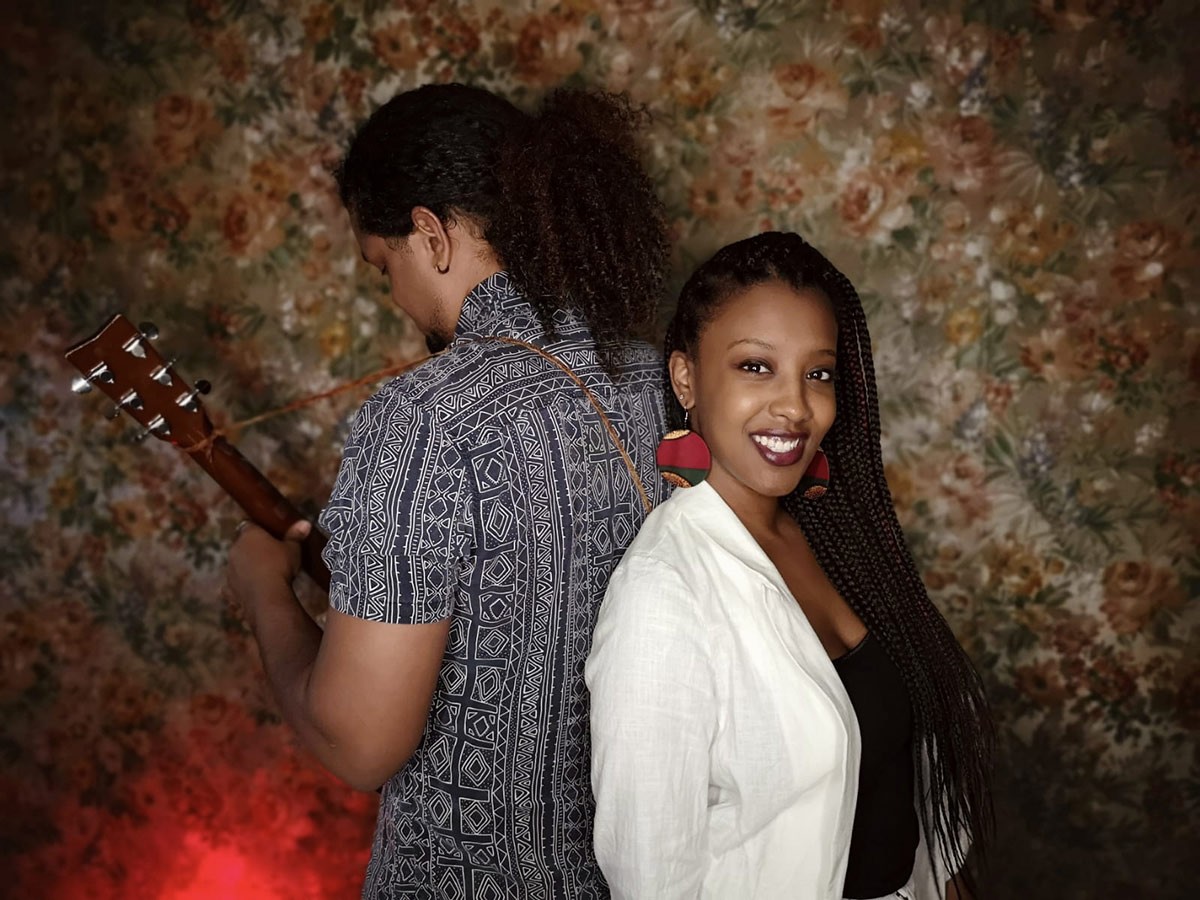An oral tradition
AGO’s Virtual School Programs are celebrating Black creatives all month! We spoke to I.M.F, a guest facilitator who will be using the power of spoken word to inspire students.

Image courtesy of I.M.F and Raffiki
Happy Black History (Futures, Liberation) Month! Since last February, the Black community and the international movement for Black lives have faced a lot. In 2021, this month presents a great opportunity to commemorate the past, acknowledge the present and envision the future. The AGO’s Virtual Schools Program is marking the occasion by celebrating Black creatives. Every Friday in February, students from Junior Kindergarten to Grade 12 can gain a deeper understanding of art from the AGO Collection created by Black artists. These dynamic school sessions incorporate spoken word poetry and great music. The goal is to support teachers as they engage students in contemporary conversations about Black communities.
Led by spoken word/music tandem I.M.F (In My Feelings) and Raffiki, along with an AGO Art Educator, the sessions will include an introduction to the art of the spoken word and an exploration of the artwork in the AGO Collection through the use of critical analysis. The creative duo will also share their music and poetry during the session.
We connected with I.M.F to find out about her and Raffiki’s origin story and how they plan to approach their work with AGO Virtual School Programs.
AGOinsider: When and how did you get your start as a spoken word artist?
I.M.F: I started performing spoken word poetry with my best friend about three years ago. We came to build a style that incorporated a poem and a chorus, mimicking a song without the instrumentals. Before then, I was always writing my songs, but once I got the opportunity to perform last year at the AGO for Family Sundays, I started to see myself as a spoken word artist. I always saw myself as a singer and songwriter who uses music to express herself, hence the name, I.M.F, which stands for "In My Feelings." However, coming to learn about spoken word, I came to see the commonalities in these mediums. Since then, I have tried to incorporate all these mediums in creative new ways to fit the styles I've come to see as spoken word for me.
AGOinsider: You'll be using your poetry/performance as a way to help students better understand art from the AGO Collection. Why do you think spoken word poetry is such a powerful teaching tool?
I.M.F: I believe spoken word is a powerful oral tradition and teaching tool that adds imagination and an auditory experience next to a visual one. Spoken word can provide language that guides the students visually alongside the art before them. I picture it as a student watching the piece and hearing it simultaneously, which builds a soundscape around the works. Spoken word is a non-traditional way of educating youth on art pieces, and it's an interactive tool that can offer the audience an opportunity to think about how they connect with the piece in front of them.
AGOinsider: How long have you and Raffiki been performing together? What is the origin story of the two of you becoming a duo (or working together)?
I.M.F: Raffiki and I have been working together since the start of our relationship about five years ago. We both shared our love for music and the arts, and from then on, we began to create works together. Raffiki is an artist who dabbles in the mediums of sound. He’s a music producer, instrumentalist, songwriter and DJ. Raffiki is my right hand, creative partner, and my one-man band. We are two new artists who have started at the grassroots level building a reputation in our local communities and hope to bring our act online very soon.
AGOinsider: The global movement for Black lives picked up a lot of steam in 2020. Do you think this will change/shift your approach as a performer during Black History Month this year?
I.M.F: I think this will change my approach this year. Through the arts we want to build an understanding of what systemic racism, oppression, and anti-Black racism look like in everyday life. And help develop an understanding of how these systems play out in people's lives by giving a creative way to understanding some of these complicated issues. The pieces Raffiki and I will be responding to are done by artists from the African Diaspora. We will be tapping into these artists' works and creating stories that further humanize Black people who have been dehumanized for so long. We will be reflecting on the systemic oppression that many in the Black communities face and bring forward the realities of what it means to be Black in this world.
Find out more about enrollment in this and other AGO Virtual School programs here.
Virtual School Programs
Virtual School Programs
Generous Support
Generous Support
Generous Assistance
Generous Assistance
